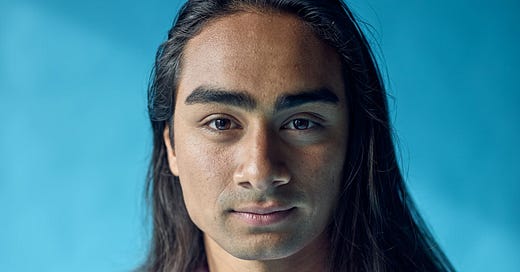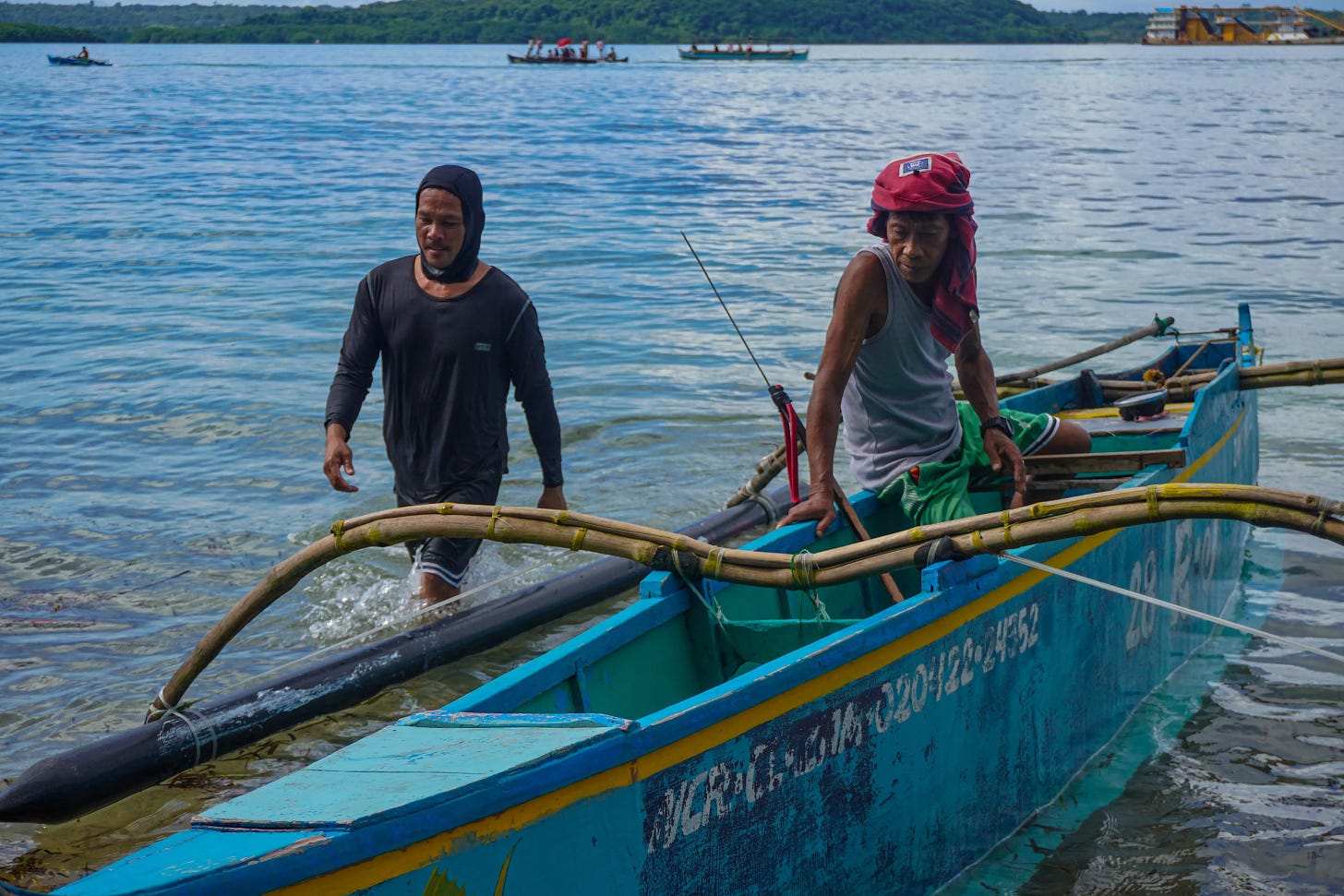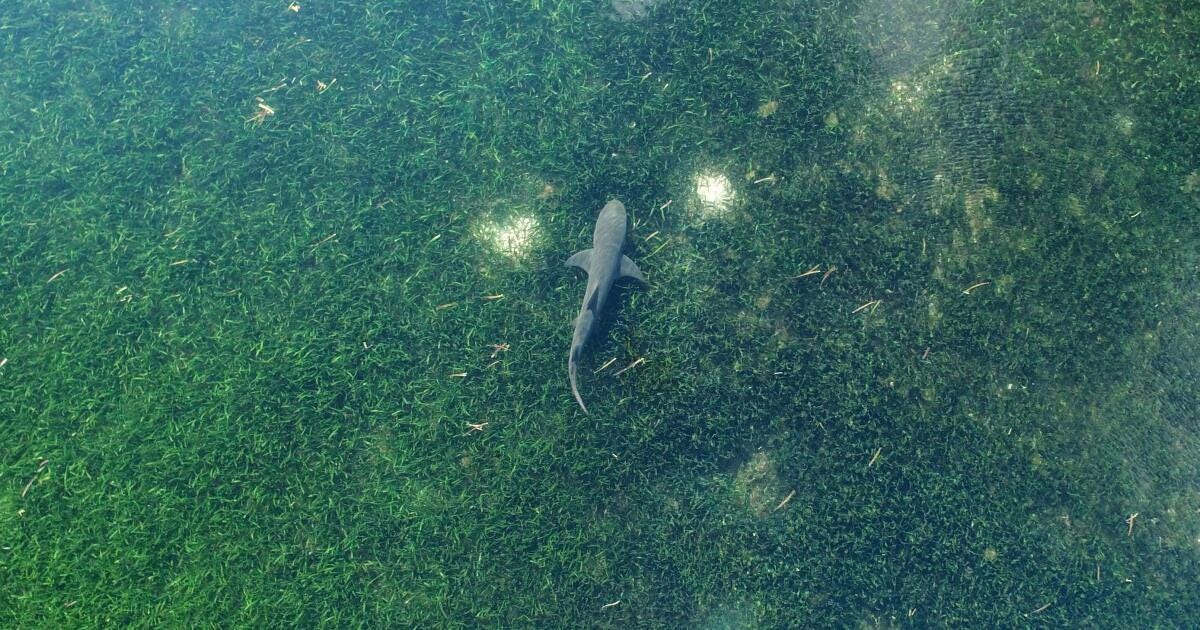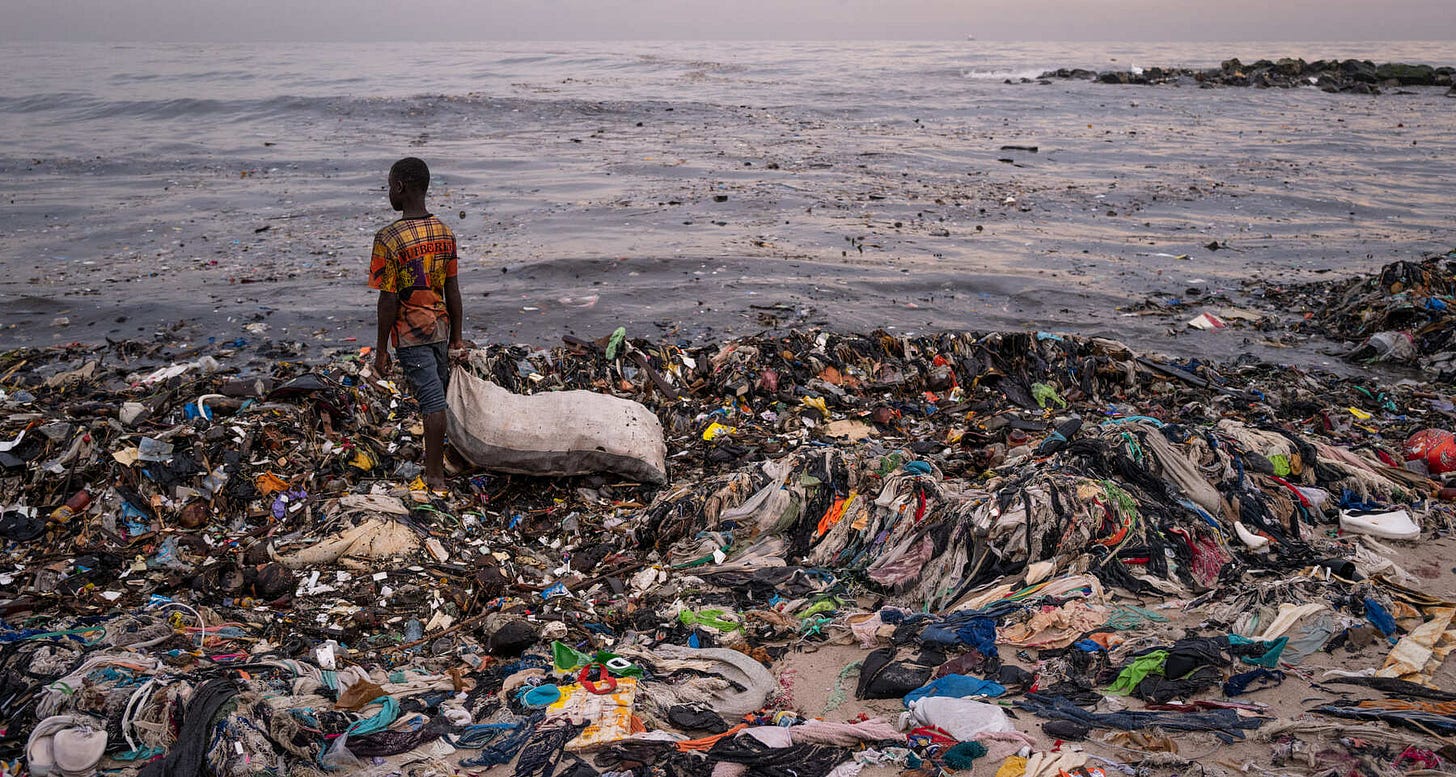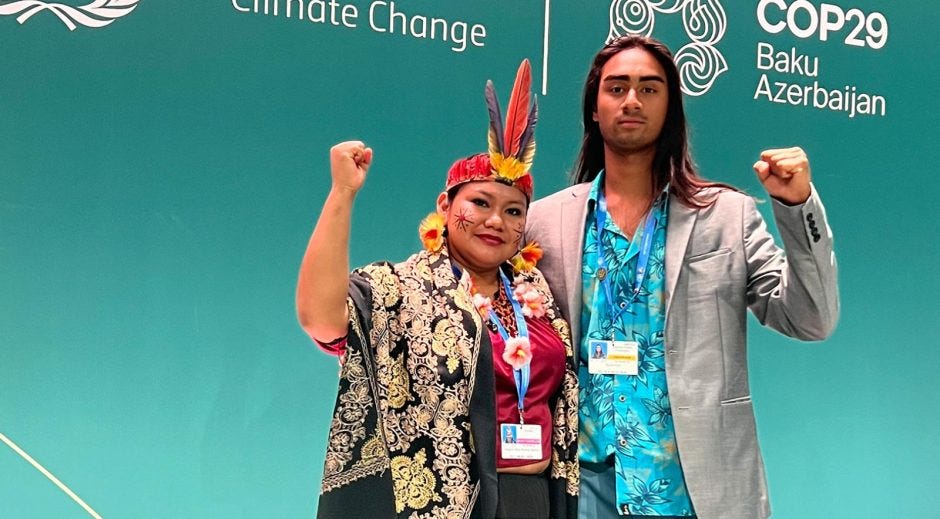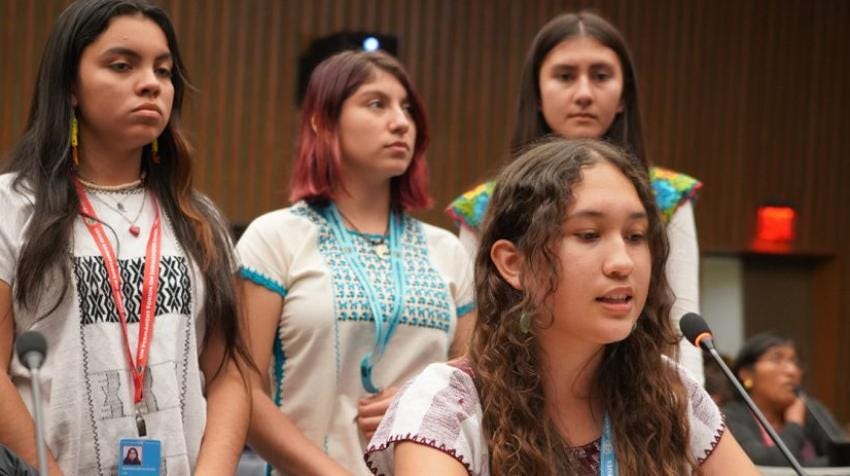Ocean Conservation and Advocacy with Climate Solutionist Bodhi Patil
Protecting and safeguarding our planet’s largest ecosystem
The ocean is the Earth’s life force in many ways. This vast ecosystem covers over 70 percent of the planet’s surface, contains 97 percent of its water, and makes up 99 percent of its habitat1. Additionally, it plays a foundational role in climate regulation. Yet it has long been an afterthought in environmental policy and climate action discussions2.
Despite the ocean’s centrality to sustaining life, from regulating weather to capturing carbon, its importance is only beginning to receive the attention it deserves. In this edition of This Week in Sustainability, we spotlight the role of ocean health in the broader climate narrative through an insightful conversation with Bodhi Patil, an award-winning ocean advocate, youth leader, and founder of InnerLight. His work bridges the gap between human and ocean health, championing interconnected solutions rooted in science, equity, and storytelling.
“We’re biologically, chemically, physically, spiritually and in so many ways connected to the health of the ocean. Ocean health and human health are directly linked.” - Bodhi Patil
A Childhood Shaped by the Sea
Bodhi’s connection is a lifelong one. His father works in the regenerative blue economy at the World Bank, spearheading large-scale financial initiatives that support natural capital and the preservation of blue carbon. His mother, a lawyer, author, and martial artist, taught him the power of perseverance and the value of telling stories that matter.
“I learned a lot picking up the best parts of what it's like to help support the blue economy, and also what it's like to fight for what you love and be tactical and very strategic about how you share your stories with the world.” - Bodhi Patil
Growing up across five continents and near five different oceans, Bodhi developed a rare, global understanding of the ways ocean health connects us all. This global upbringing instilled in him not only a deep love of the ocean but also an appreciation for diverse human experiences and environmental stewardship practices around the world.
Today, Bodhi brings that global awareness to a range of projects. He is the founder and CEO of InnerLight, a co-founder of One World Breath, a co-creator of Ocean Uprise, a TEDx speaker, a keynote presenter, and an advisor to several climate-focused organizations. His leadership is rooted in the belief that healthier oceans lead to healthier people and communities.
The Climate-Ocean Connection
Understanding climate change without considering the ocean is like trying to read a book with half the pages torn out. The ocean is not only our planet’s largest carbon sink3, absorbing about a quarter of human-generated CO₂ emissions4, but it also plays a critical role in regulating temperatures and weather systems through vast currents.
However, this essential system is under severe strain. Marine biodiversity is in sharp decline5, threatening ecosystems and food security for billions of people. A report from the Natural Resources Defense Council warns that species loss in the ocean is happening at an alarming pace due to pollution, overfishing, and warming waters.
One of the most pressing concerns is the stability of the Atlantic Meridional Overturning Circulation (AMOC), a crucial system of currents that moderates temperatures globally. Recent research suggests that the AMOC is weakening and may collapse far sooner than previously believed6. This is an event that would have devastating consequences for weather systems, sea levels, and ocean ecosystems around the world.
The stakes are especially high for the more than 3 billion people who depend on the ocean for their livelihoods7, many of whom live in developing nations already on the front lines of climate disruption. For them, protecting the ocean is not just about environmental conservation. It’s about survival, justice, and economic stability.
Nature as a Partner, Not a Resource
As Bodhi emphasizes, we need to shift our mindset from exploiting nature to aligning with it. The ocean isn’t just a tool in our climate toolkit, it is a living system with which we are deeply and inextricably linked. Investing in a sustainable, nature-based economy that centers ocean health is not only a climate imperative but a moral one.
“We need to be better friends of nature and the ocean, and to remember that whether it's about building a nature-based economy or a healthy blue economy, we should protect nature for the sake of protecting all of humanity because nature is our very life source.” - Bodhi Patil
Indigenous Knowledge: A Vital Compass for the Future
As the climate crisis accelerates, there’s growing recognition of the critical role that Indigenous communities play in preserving ecosystems. Indigenous peoples manage or hold tenure over about a quarter of the Earth’s surface8 and are stewards of 80 percent of global biodiversity9. Their traditional ecological knowledge, honed over thousands of years, offers unparalleled insight into sustainable living and ecosystem balance.
Bodhi actively supports the integration of Indigenous wisdom into global climate action. He highlights the work of initiatives like the Wisdom Keepers Delegation at COP29, which brings Indigenous voices and leaders to the heart of international climate negotiations.
“What we need to do going forwards is combine the wisdom and leadership of elders, their traditional ecological knowledge, their Indigenous science with the technological know-how, the energy, the capacity, the diversity of young people because without that intergenerational collaboration mechanism we won't be able to fill the gaps that we're seeing with runaway climate change.” - Bodhi Patil
This intergenerational and cross-cultural collaboration is essential. By combining the deep-rooted knowledge of Indigenous elders with the innovation and energy of today’s youth, we can begin to address the massive gaps in our current climate strategies.
Daily Actions for Ocean Health
While the scale of ocean degradation can seem overwhelming, Bodhi believes that each of us can make meaningful contributions to ocean health in our daily lives. It begins with acknowledging and respecting the lands and waters we inhabit, and the Indigenous communities who have long protected them.
“Know whose lands and water you're on and pay respects to the original communities of those lands and waters that you occupy because, when you think about it, a lot of my elders remind us that we're all Indigenous somewhere. I think this sense of belonging and cultivating multicultural community is really important now.” - Bodhi Patil
One practical step is simply educating ourselves about whose land we’re on and supporting local Indigenous climate initiatives. Beyond that, finding a personal entry point into the climate movement can help individuals stay committed for the long haul.
“For me that was building ocean and climate Solutions and showcasing through science communications some of the tools that can protect the ocean and from there it expanded into a lot of climate and ocean justice work.” - Bodhi Patil
For Bodhi, that path began with ocean and climate solutions, particularly through science communication. From there, his work expanded to include climate justice, youth empowerment, and coalition building. Whether your niche lies in technology, art, education, or policy, there's a space for everyone to help safeguard our shared planet.
Final Thoughts
The health of the ocean is a mirror of our own health—physically, economically, and spiritually. If we truly want to build a livable, equitable, and resilient future, we must put the ocean at the heart of climate solutions.
Bodhi’s story serves as a reminder that change often starts with a deep personal connection to the natural world and grows through community, storytelling, and courageous action. From lifting up Indigenous wisdom to transforming finance and innovation, the ocean offers not only challenges but also tremendous opportunities for regeneration.
As we look ahead to the second half of the year, may we continue to honor, protect, and learn from the ocean, one of our most powerful climate allies.
Want to get involved in protecting our oceans? Consider donating to a nonprofit working to protect the ocean, participating in a local community clean-up, looking for sustainably sourced seafood, and advocating for ocean friendly actions within your community. You can access more resources through Parley’s Ocean Uprise initiative.
To learn more about Bodhi and follow his journey check out his website, or follow him on Instagram and LinkedIn.
This Week in Sustainability is a weekly email from Brightest (and friends) about sustainability and climate strategy. If you’ve enjoyed this piece, please consider forwarding it to a friend or teammate. If you’re reading it for the first time, we hope you enjoyed it enough to consider subscribing. If we can be helpful to you or your organization’s sustainability journey, please be in touch.

